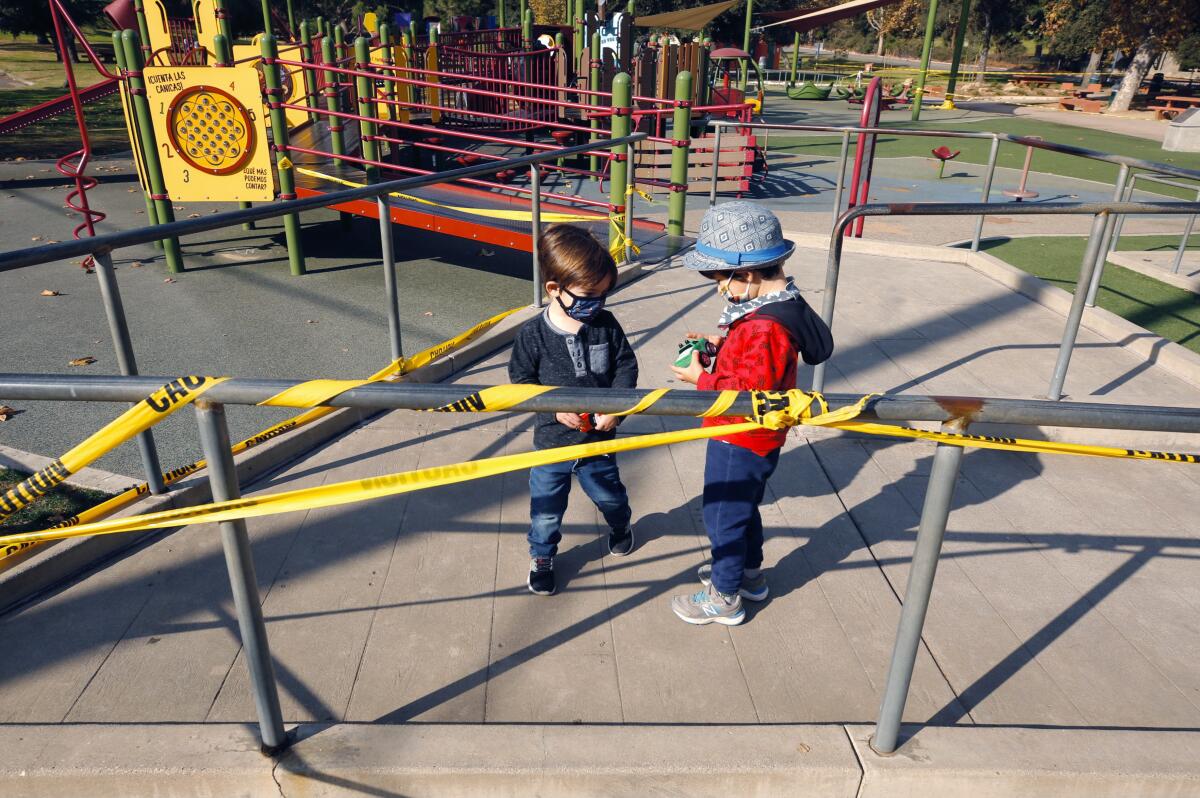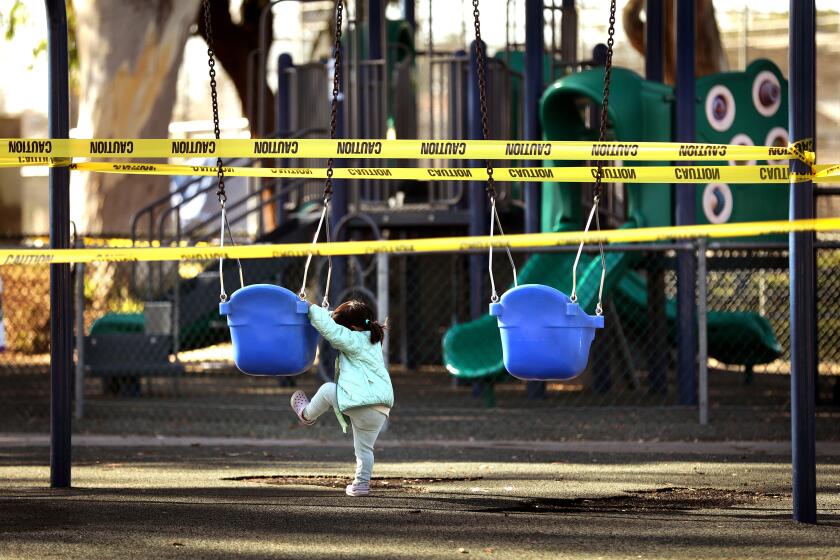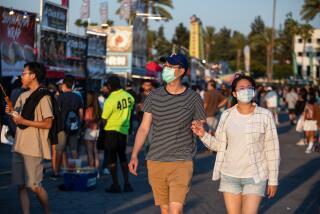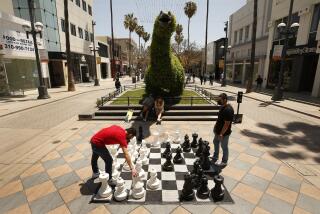In a reversal, California and L.A. County say playgrounds can be open under COVID-19 restrictions

Following an outcry from parents and some legislators, California will keep playgrounds open despite a surge in coronavirus cases.
Playgrounds had been closed in some areas under a regional stay-at-home order that took effect last week. Los Angeles County had closed its playgrounds before that, but officials there confirmed they will follow the state’s lead and allow playgrounds to reopen.
According to the updated state guidance, which was released Wednesday morning, “playgrounds may remain open to facilitate physically distanced personal health and wellness through outdoor exercise” — an about-face from the previously announced rules, which stated they would be closed in regions where critical care services were strained due to COVID-19.
Though several aspects of California’s latest regional stay-at-home order have come under fire since Gov. Gavin Newsom unveiled it last week, the closure of playgrounds sparked particular backlash — with parents expressing outrage and confusion about why their children’s play areas would be off-limits while places like malls remain open.
The state “received feedback from the community and heard their concerns about the lack of outdoor spaces for children if playgrounds remained closed under the new regional stay-home order” and decided those areas could stay open “with modifications that include masking, social distancing and following other recommendations,” said Ali Bay, a representative for the California Department of Public Health.
“We encourage all children and families to get outdoors during this challenging time for exercise, fresh air and good mental health while avoiding sites where people congregate and where social distancing is not possible,” Bay said in an email.
California Gov. Gavin Newsom is facing criticism over closing playgrounds as part of his new stay-at-home order
In a letter to Newsom last week, some California lawmakers also noted that lower-income areas would be hit hardest by the rule because many residents don’t have backyards and other open spaces where they can take their children.
“While we must appropriately consider best practices to reduce the risk of COVID-19 transmission, we also must ensure the children across the state are not unfairly deprived of their opportunities for outdoor access and play,” said the letter, which was signed by a dozen legislators. “The broad closure of playgrounds unfairly negatively impacts children and families.”
One of the letter’s signers — Assemblywoman Lorena Gonzalez (D-San Diego) — greeted the state’s reversal Wednesday with an emphatic, “Yay!”
“Thank you to all the legislators who joined me in asking the state to review playground closures,” she wrote on Twitter.
Officials in Los Angeles County — which had closed outdoor public playgrounds before the state’s order as part of its own set of restrictions meant to slow an unprecedented surge in coronavirus cases — announced Wednesday that they would also allow playgrounds to reopen.
“Play is crucial for childhood development. But low-income communities of color living in dense housing often do not have access to a yard,” L.A. County Supervisor Hilda Solis wrote on Twitter. “With distance learning, having access to public playgrounds is more important now than ever.”
Generally, counties are allowed to adopt regulations that are more restrictive, but not more lenient, than the state’s.
Though the county has not publicly linked outbreaks to playgrounds, officials previously said they believed the closures were necessary.
For many parents confounded by an array of official dictates, closing playgrounds crossed a line in the sandbox.
Before issuing the regulations, health officials “went back and forth for many days” about how to handle reports from local parks departments about crowding, children playing without masks and the difficulty of sanitizing playground equipment, L.A. County Public Health Director Barbara Ferrer said last week.
Those concerns linger despite the rule change, she said Wednesday.
“These decisions are really hard decisions, and again, it’s a balance of trying to make sure that we’re allowing children to get some physical exercise and have some activity and knowing that there’s risk every time we go to places where there can be a lot of intermingling,” she said during a briefing.
Everyone needs to wear a face covering, she said, and parents and caregivers should regularly sanitize youngsters’ hands before and after they use communal equipment.
Ferrer also recommended that families avoid overcrowded playgrounds and said it’s vital to maintain physical distance from other households.
“We really think it’s appropriate for families to make sure they understand, if at all possible, [to] find other ways for your children to be able to be physically active and, if you are going to a playground … to take all kinds of precautions,” she said.
Times staff writer Phil Willon contributed to this report.
More to Read
Sign up for Essential California
The most important California stories and recommendations in your inbox every morning.
You may occasionally receive promotional content from the Los Angeles Times.











